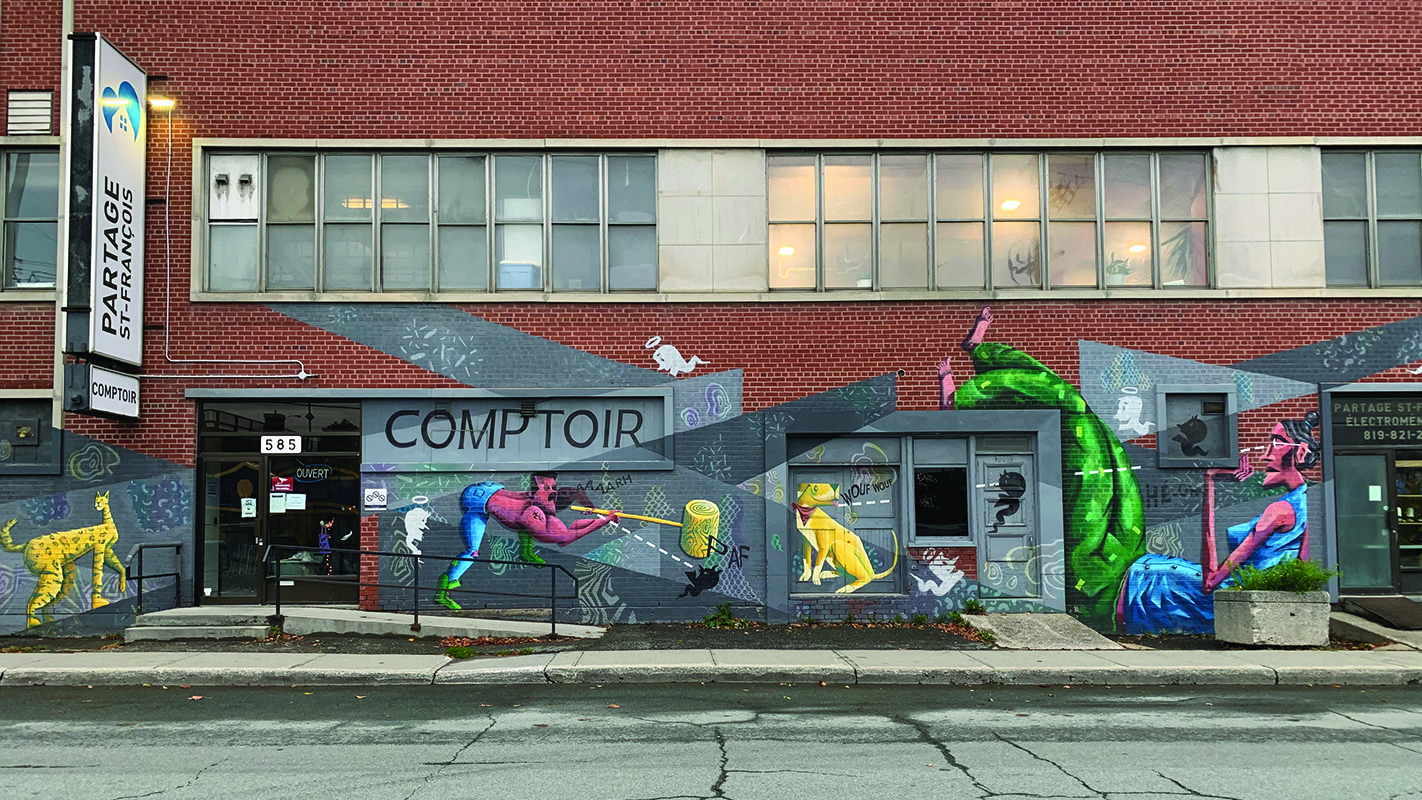With the winter months creeping in, the Eastern Townships homeless population faces a difficult situation, especially as many regions in Quebec are slowly turning into COVID-19 red zones.
François Lemieux, coordinator at Chaudronnée de l’Estrie, said if the region goes into another lockdown to curb the spread of coronavirus, the soup kitchen will once again resort to handing out hot lunches to-go.
It isn’t ideal, Lemieux explained, but the alternative is leaving people out in the cold without a warm meal. Chaudronnée served takeaway lunches at the height of the pandemic during the spring, but as the temperature drops, Lemieux believes they need to consider other options.
“They stayed outside [in the spring] but with the cold it might be a good idea to open the hall so people can warm up with a cup of coffee,” he said.
The non-profit organization, located at 470 rue Bowen Sud, opened its doors in September and it plans to stay open for as long as possible, despite the daily increase in positive Covid cases sweeping across the province.
However, Quebec’s health and safety measures forced Chaudronnée to limit the amount of people inside at the same time. The building offers 60 spots, but they dwindled it down to 17 in order to keep a recommended two metre physical distance.
In order to accommodate everyone seeking food, Lemieux told The Record that the soup kitchen tries to create a high turnover rate. It takes roughly 15 minutes for people to complete a meal, he explained, so no one spends too much time waiting outside.
They also extended the lunch period. Meals are distributed between 11 a.m. to 12:45 p.m. every day. While they want to make sure everyone gets an equal opportunity, Lemieux added that they usually aren’t rushed enough to kick anyone out of the building.
“If there aren’t a lot of people, then the person can stay a little longer; we’re not standing right next to them with a stopwatch,” he said.
While Lemieux and the Chaudronnée team have the ability to adapt their offerings to accommodate colder weather and Covid measures, some organizations aren’t as flexible. Sébastien Laberge, director general at Partage St-François, said the situation is complicated.
There is no seasonal rush at a homeless shelter, he explained, summer and winter generates the same amount of traffic. Partage operates several facilities; a women’s and men’s shelter, an emergency housing unit, and an affordable clothing store.
The problem, according to Laberge, is that shelters typically lack available rooms and beds. He acknowledged that the cold weather always presents an issue to the homeless population, but what is more frustrating is that he isn’t able to do anything about it.
“We don’t see more people, there’s always a lot of people, and there’s always too many people for our facility,” he said. “We’ve never been able to meet demand, but now what we’re seeing is the problems have become more serious.”
Right now, Laberge continued, the homeless population and people in need of emergency shelter are facing more pressing issues than weather. When the economy shut down for several months, it left a lot homeless people in the dark.
Many of these people don’t have regular access to phones, laptops, computers or the internet, he added, and they are no longer afforded a chance to seek warmth and refuge in a Tim Hortons or a shopping mall due to health and safety rules.
It can be very jarring, said Laberge, and it caused a lot of added stress. He also said the situation was made worse due to the Canada Emergency Response Benefit (CERB). Some people living off welfare cheques defrauded the system to take advantage of CERB cheques.
“The federal and provincial government said they’ll follow people to recuperate the money because it’s fraud, but how will these people pay that money back,” he asked, adding that most of the people receive $600 a month in financial aid compared to $2,000 through CERB.
Laberge also noted that he has seen more people showing up to his facilities intoxicated and disoriented, which he blames on CERB. They use the money to feed their addictions, whether it’s alcohol or drugs, he said.
“These people are going back to normal amounts of financial aid cheques, but they were consuming a lot and now we’re in the middle of it with serious consumption problems,” concluded Laberge.
Homeless shelters brace for winter months
By Michael Boriero - Local Journalism Initiative Reporter






